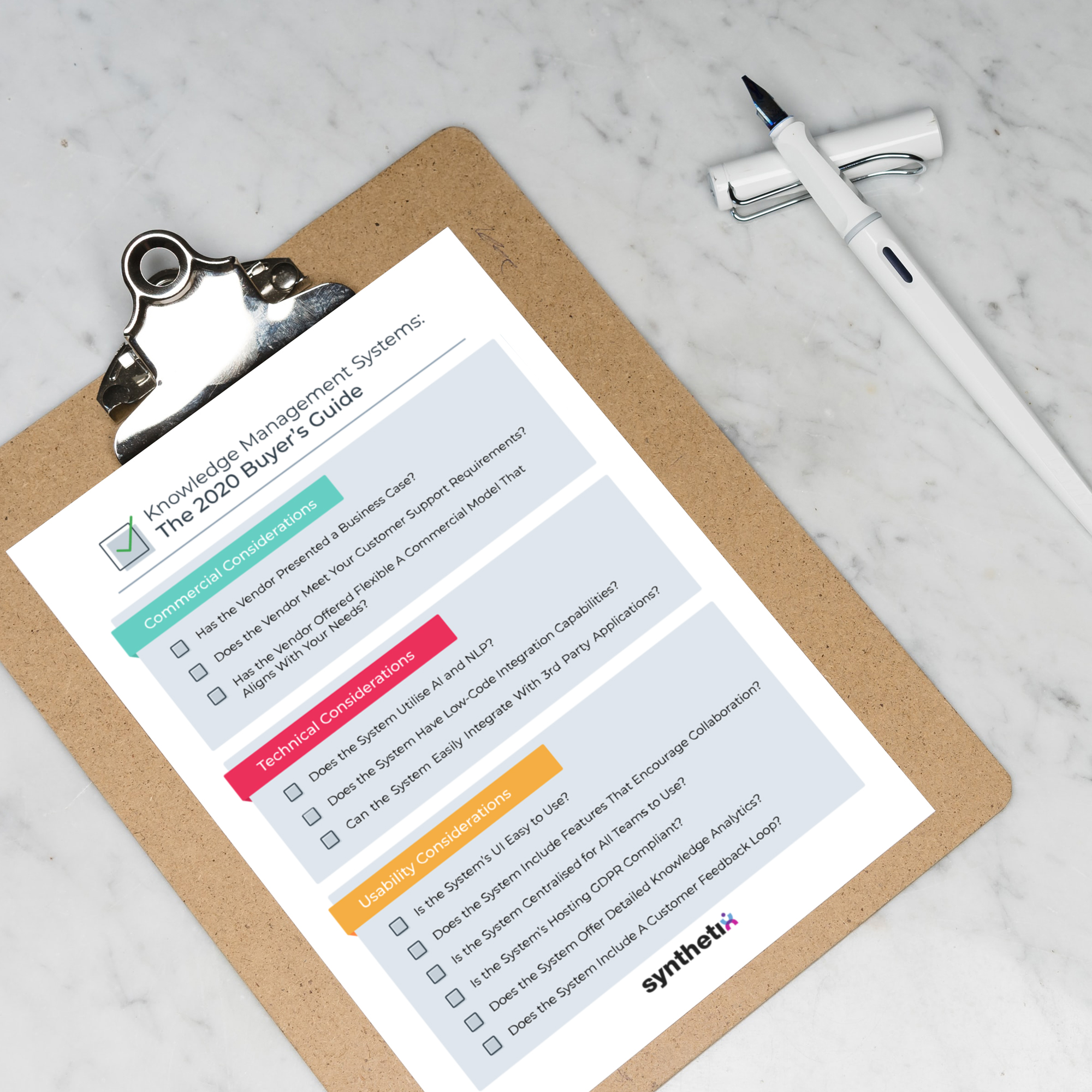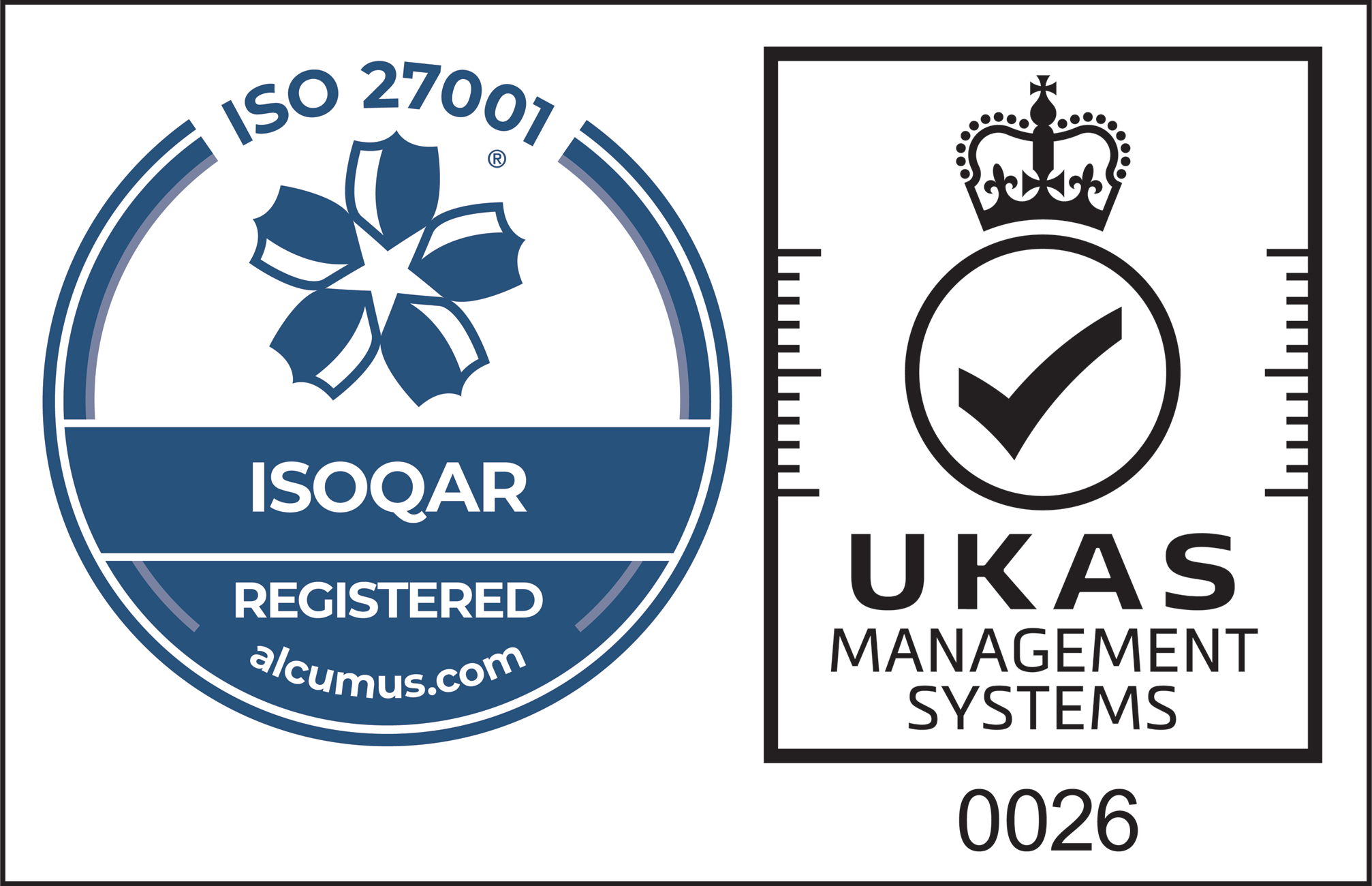Commercial Considerations
Has the Vendor Presented A Business Case?
Before any commitments are made, you and your colleagues must be confident in the knowledge management system you select. Does the ROI presented in the vendor’s forecast align with your business’ expectation of payback and long term financial uplift?
You need to know the answers to such questions pre-purchase, so ensure your vendor provides a business plan outlining the cost/benefit of deployment. This should include a projected ROI that is mapped to an implementation and post-launch timeline, used as a framework to understand your payback period. Ask vendors in your selection process to provide this framework from their previous deployments.
Does the Vendor Meet Your Customer Support Requirements?
Firstly, discuss what level of customer support you require as a company, taking into consideration that your CX delivery works at the speed of your slowest channel. If your knowledge management system support is only active at certain times of the week or day, you can only truly guarantee service during these times.
Vendors offer multiple levels of customer support from critical only, to standard office hours to weekend and evening cover. Discuss your support needs with your prospective vendor, ensuring that the terms of support, including hours, are covered contractually in the SRS.
Has the Vendor Offered Flexible A Commercial Model That Aligns with Your Needs?
Each company will have a preferred way of purchasing its knowledge management system.
The first step in understanding your own commercial needs concerning CX is considering these questions:
- Are your levels of customer contact consistent or is there a significant seasonal variance?
- Are you planning on scaling operations? Or do you wish to optimise your operations with a set team size?
- Do you have existing contractual relationships that you wish to align your CX expenses with?
These considerations play a key role in determining your commercial needs, once you have the answers to these questions you can source a vendor that will match your requirements. If you are unsure about the answers to these questions, please get in touch ; we’re happy to walk you through them.
For more on Knowledge Management 101, check out the Essential Guide here.
Technical Considerations
Does the System Utilise AI And NLP?
Choosing knowledge management systems that harness AI and Natural Language Processing (NLP) is inherent to your CX and CSAT scores. AI is responsible for matching customer queries with relevant results, eliminating any roadblocks that could lead to frustration and poor CX, so you need to ensure your knowledge management system uses modern machine learning principles, not an outdated keyword matching model.
NLP helps to ensure the precision and efficiency of results delivered. It understands human utterance by breaking down the query into:
- Keywords
- Intent
- Grammar
- Popularity
Each component is then analysed to determine the most suitable result. Due to its intricacy, NLP understands not only naturally phrased questions, but multiple variations of the same query without producing “I’m sorry, I don’t understand that question. Please try again” – which customers experience too often when using systems that are not built on AI.
Does the System Have Low-Code Integration Capabilities?
There is no reason why the deployment of your knowledge management system should be complicated. Having your system up and running across your site shouldn’t require hours of developer work or toolkit configuration, by selecting systems that provide low-code implementation, setup is simple.
With low-code vendors, integrating the knowledge management system requires only one line of code to be installed. The main benefit here includes efficiency; low-code deployment allows customer-facing tools that rely on your knowledge management system, such as self-service and chatbots to be functional as soon as possible, allowing more customers to be served online.
Can the System Easily Integrate With 3rd Party Applications?
Your knowledge management system should fit in with any existing processes, workflows and 3rd party applications that you and other departments use. Choose a system that offers open RESTful APIs for seamless integration with other apps.
Operational efficiency skyrockets when integrations are facilitated between knowledge management systems and apps that are heavily relied on by teams, such as:
- CRM Systems
- Email Systems
- In-Store Systems
These integrations encourage knowledge sharing across the company, contributing to critical operational and strategic decision making whilst boosting your competitive advantage.
Learn how to optimise knowledge management with these 12 best practices.
Usability Considerations
Is the System’s UI Easy to Use?
The importance of UI cannot be understated. It is something your agents will interface with all day, every day. As a result, subtle design plays a huge role in agent efficiency. GUIs designed with quality of life and ease of use as a central principle, then refined through iterative testing, pull vastly ahead of systems build by engineers. When UI are cumbersome or over-complicated, editor and agent time is unnecessarily spent trying to navigate the functions.
Keeping it simple is key.
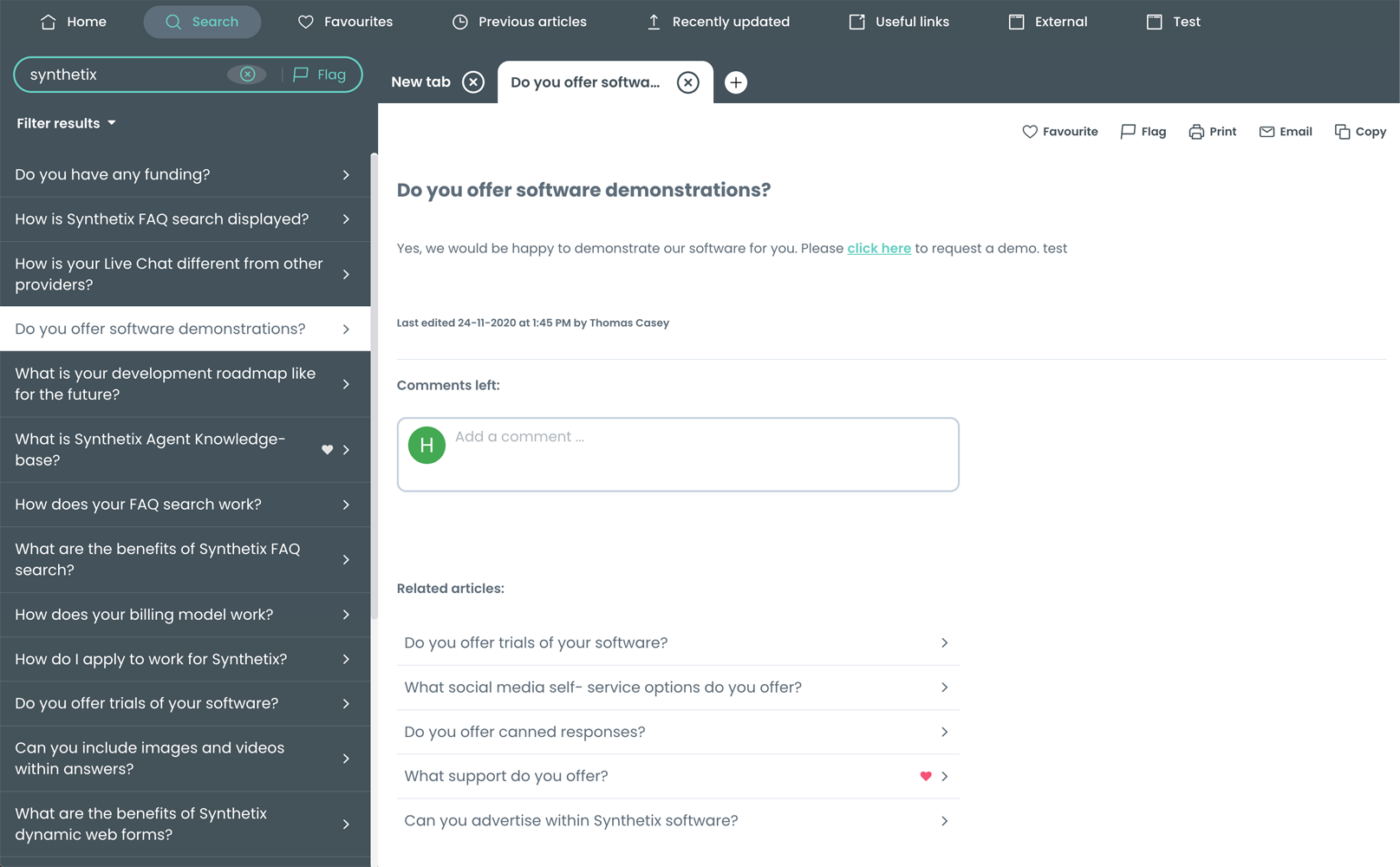
- Does the agent interface offer a simple search function for finding all knowledge articles your company requires?
- Does the editor interface enable the simple adding and editing of articles through step-by-step navigation?
- Can key functionalities be accessed through the UI, for example, integrated chat console, knowledge analytics and user stats?
- Remember who the users are and consider these points when choosing a knowledge management system.
Does the System Include Features That Encourage Collaboration?
Equipping agents with collaborative capabilities can only improve the efficiency and depth of knowledge. Choose a knowledge management system that includes internal messaging; allowing agents to share useful articles with one another.
Further, select a system that enables agents to suggest edits or highlight gaps within knowledge articles. These users spend the most time talking to customers and therefore should be given the tools to share their insights.
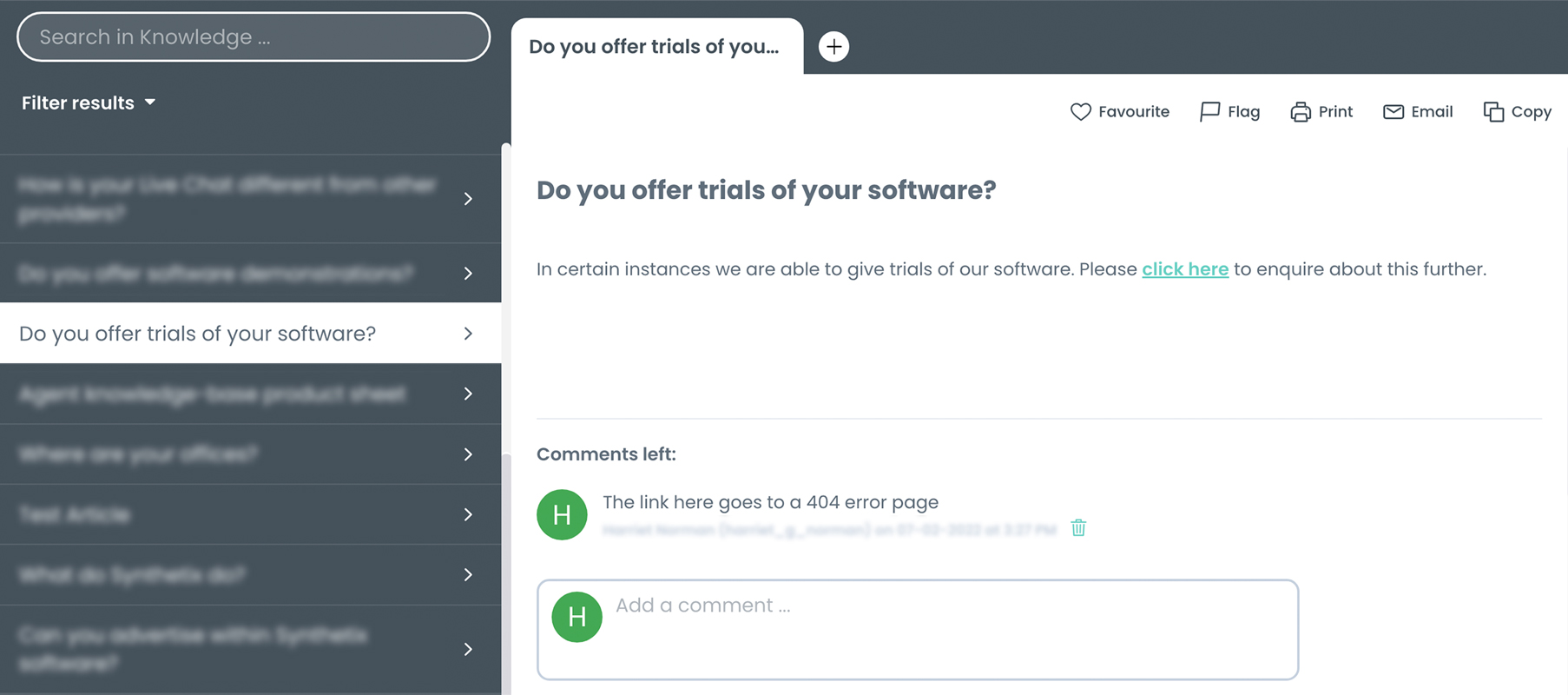
Is the System Centralised for All Teams to Use?
Having one centralised knowledge management system that stores all company knowledge in one place is vital. It enables the consistent and accurate sharing of information to customers and across departments – without one centralised source, you risk distributing inaccurate information internally and externally.
Companies face issues when their knowledge is fragmented; each team has its own knowledge management system and each customer service tool relies on its own system too. The subsequent inconsistencies and inaccuracies of information shared is problematic.
For reliability and consistency, choose a system that acts as your company’s centralised source of knowledge – one that includes all teams and integrates with all tools, including live chat , self-service, chatbots and agent knowledge interfaces.
Is the System’s Hosting GDPR Compliant?
Ensure the vendor you choose to work with is GDPR compliant, particularly if they are collecting and storing customer data.
Does the System Offer Detailed Knowledge Analytics?
You can’t manage what you can’t measure.
Ensure your knowledge management system offers comprehensive analytics. Working with the metrics in mind contributes to the constant improvement of knowledge management within your company and ultimately deliver customers better results over time.
Systems that allow you to toggle between views and tools, that offer you metrics on top-performing articles and categories plus user analytics can assist in improving operational efficiency.
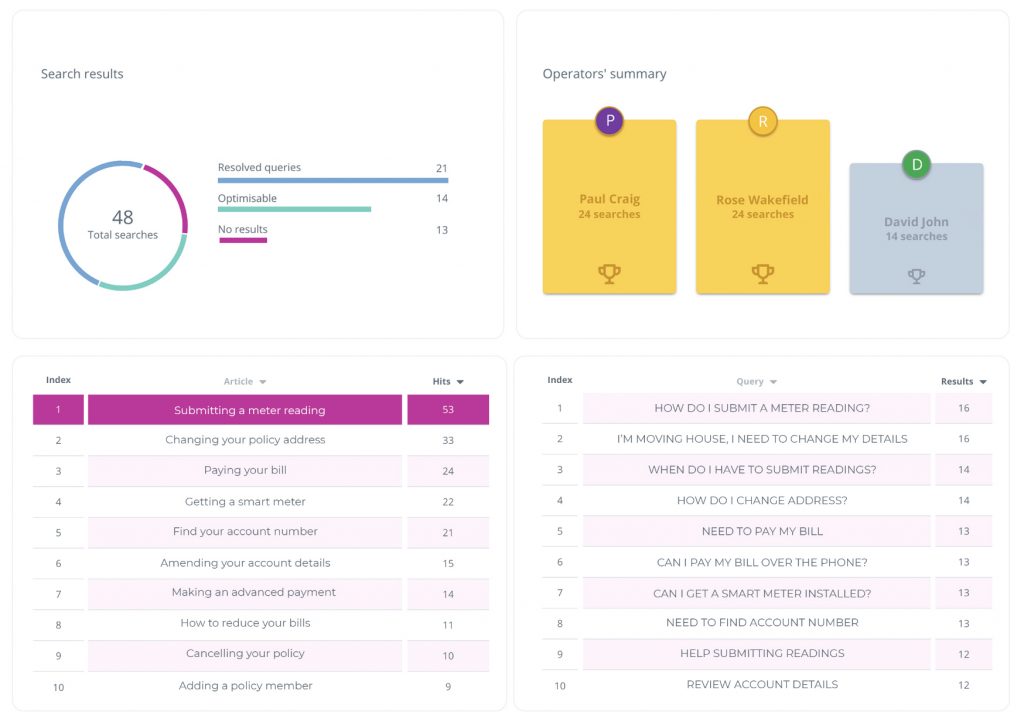
Does the System Include A Customer Feedback Loop?
Do you know that your knowledge system is working as intended and that the content it is distributing is proving effective? Receiving customer feedback regarding the information that is accessed by customers and user is vital in understanding this. It can bring to light any issues or gaps with the information served, equally, it can validate if results were adequate. Work scientifically, falsify ideas and work with knowledge management vendors who appreciates this principle.
Ensure the knowledge management system you choose has customer feedback capabilities built-in. By asking customers “Did this answer your question?” and linking the responses to the system’s centralised analytics section, Knowledge Managers can evaluate article effectiveness, making decisions based on the user-generated data for optimal results.
If you enjoyed this knowledge management system buyer’s guide and would like to work with a vendor who understands your commercial, technical and usability requirement, please get in touch with Synthetix today.
